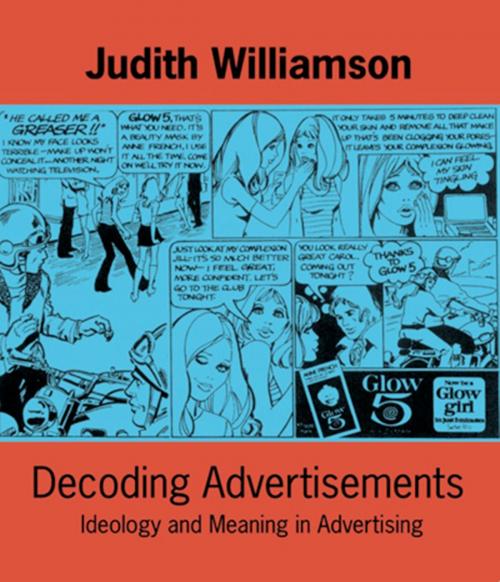| Author: | Judith Williamson | ISBN: | 9780714522708 |
| Publisher: | Marion Boyars | Publication: | October 10, 1978 |
| Imprint: | Marion Boyars | Language: | English |
| Author: | Judith Williamson |
| ISBN: | 9780714522708 |
| Publisher: | Marion Boyars |
| Publication: | October 10, 1978 |
| Imprint: | Marion Boyars |
| Language: | English |
Judith Williamson does not simply criticize advertisements on the grounds of dishonesty and exploitation, but examines in detail, through over a hundred illustrations, their undoubted attractiveness and appeal. The overt economic function of this appeal is to make us buy things. Its ideological function is to involve us as 'individuals' in perpetuating the ideas which endorse the economic basis of our society. If economic conditions are the ones that make ideology necessary, it is ideology which makes those conditions seem necessary. In order to change society, the vicious circle of 'necessity' and ideas must be broken. Decoding Advertisements is an attempt to forge, in our acceptance not only of the images and values of advertising, but of the 'transparent' forms and structures in which they are embodied. It provides a 'set of tools' which we can use to alter our own pereptions of one society's subtlest and most complex forms of propoganda.
Judith Williamson does not simply criticize advertisements on the grounds of dishonesty and exploitation, but examines in detail, through over a hundred illustrations, their undoubted attractiveness and appeal. The overt economic function of this appeal is to make us buy things. Its ideological function is to involve us as 'individuals' in perpetuating the ideas which endorse the economic basis of our society. If economic conditions are the ones that make ideology necessary, it is ideology which makes those conditions seem necessary. In order to change society, the vicious circle of 'necessity' and ideas must be broken. Decoding Advertisements is an attempt to forge, in our acceptance not only of the images and values of advertising, but of the 'transparent' forms and structures in which they are embodied. It provides a 'set of tools' which we can use to alter our own pereptions of one society's subtlest and most complex forms of propoganda.















